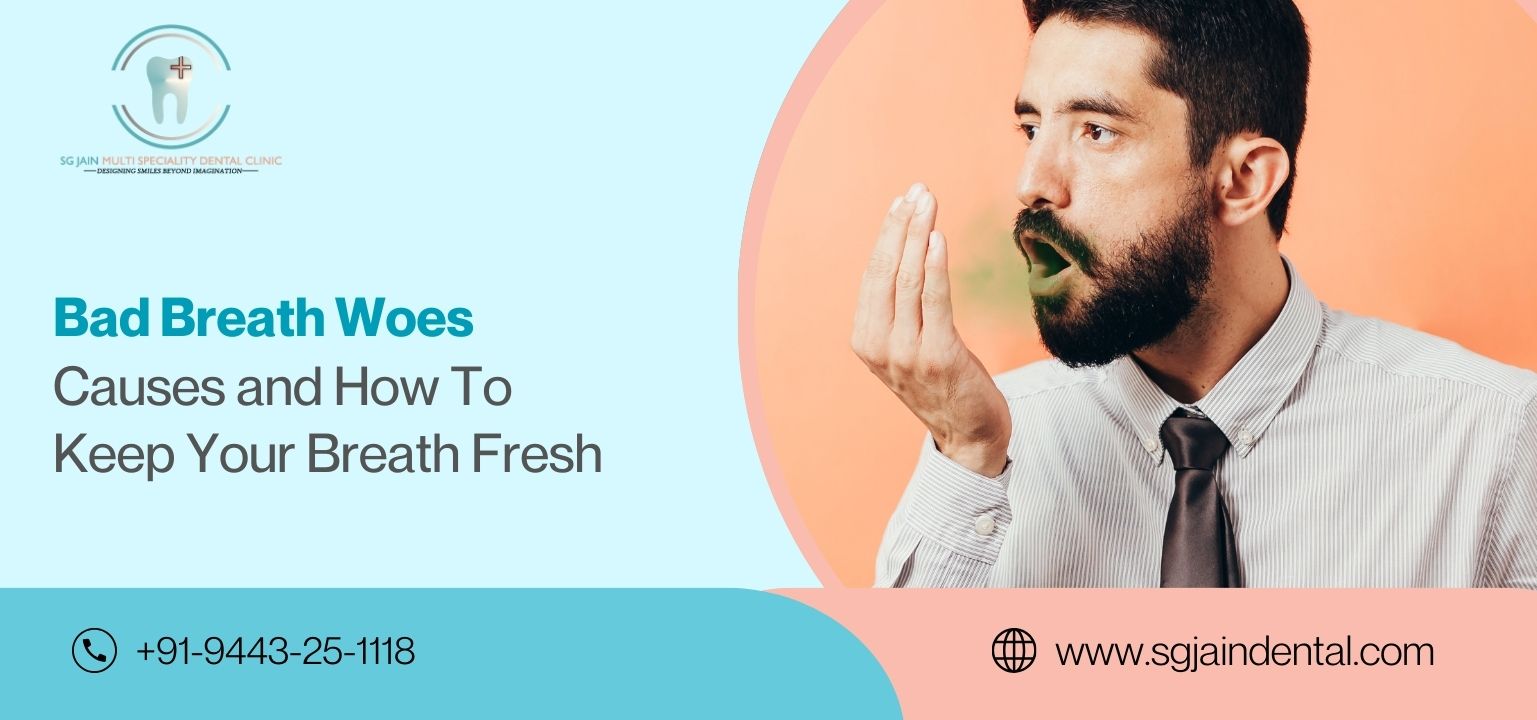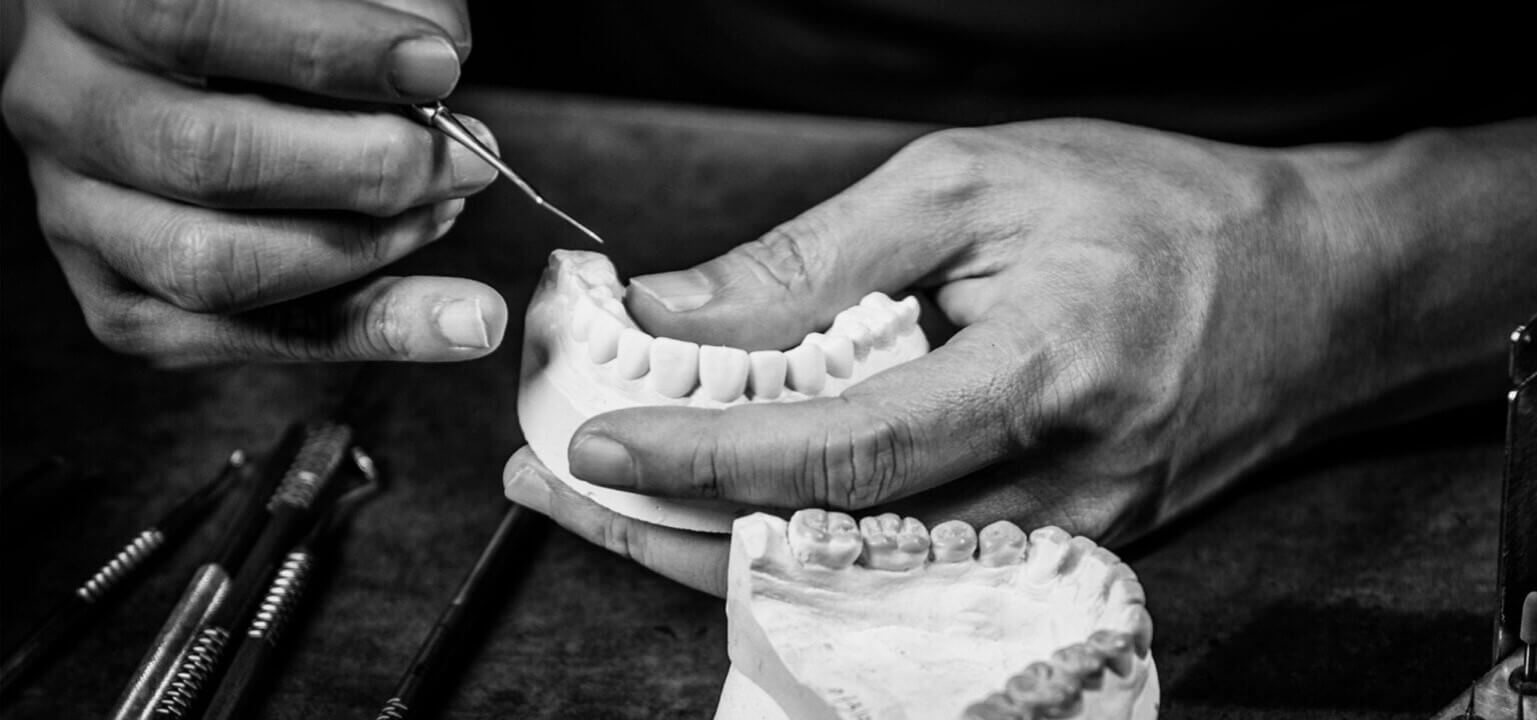

Losing a tooth can feel overwhelming, whether it’s due to injury, decay, or aging. Not only does it affect your smile, but it can also impact your ability to chew, speak, and maintain overall oral health. While there are several tooth replacement options, dental implants stand out as the most reliable, long-lasting, and natural-looking solution.
Bad Breath Woes: Causes and How to Keep Your Breath Fresh
We've all been there—you're talking to someone, and you can feel that sense of discomfort as you wonder, "Do I have bad breath?" Whether it's a social gathering, a meeting, or even a close conversation with a friend, bad breath can create an uncomfortable situation. It’s a common issue that many people face at some point in their lives. Well, with the right understanding and a few simple changes, you can keep your breath fresh and face each day with confidence.
What Causes Bad Breath?
Bad breath, known as halitosis, can arise from a variety of causes. While it’s often linked to poor oral hygiene, there are also many other factors that can contribute to this unpleasant issue. Let’s break down the most common causes of bad breath:
Poor Oral Hygiene
The most common culprit behind bad breath is poor oral hygiene. When food particles and germs stay in your mouth, they can generate an unpleasant smell. Not brushing your teeth correctly and often or failing to floss can lead to the formation of plaque, which can result in foul breath.
Dry Mouth
Saliva plays a key role in washing away food particles and bacteria in your mouth. When you don’t have enough saliva, either due to dehydration or certain medications, your mouth can become dry, leading to bad breath. This is often referred to as "morning breath" because it tends to happen when you sleep, and your body produces less saliva.
Food Choices
What you eat directly affects the smell of your breath. Strong-smelling compounds found in foods such as garlic, onions, and spicy dishes can linger on your breath for a long time after eating. Even healthy foods, such as fish or coffee, can leave behind an unpleasant scent.
Gum Disease
Gum disease, or periodontal disease, is another significant cause of bad breath. When gums become infected or inflamed, bacteria can thrive, resulting in an unpleasant odor. If left untreated, gum disease can also lead to tooth loss, making it crucial to seek treatment as soon as you notice any signs of gum issues.
Medical Conditions
Persistent poor breath can sometimes be connected to underlying health conditions such as respiratory infections, diabetes, or gastrointestinal difficulties. If your bad breath doesn’t improve with proper oral care, it may be worth consulting a doctor to rule out any medical conditions.
How to Keep Your Breath Fresh
Now that we've covered the most prevalent reasons for bad breath, let's talk about how to maintain your breath fresh and confident every day. Here are some easy and powerful tips:
Brush and Floss Regularly
The most simple and efficient approach to keep your breath fresh is to wash your teeth at least twice a day and floss everyday. Brushing eliminates food particles and plaque, whereas flossing cleans between your teeth, which your toothbrush cannot reach. Don't forget to brush your tongue, since germs can collect there too.
Stay Hydrated
Drinking enough water throughout the day is very important for maintaining a healthy mouth. Overall, staying hydrated increases saliva production, minimizing dry mouth, which is a key contributor to foul breath. Carry a water bottle with you and sip throughout the day, especially after meals.
Watch Your Diet
If you have foul breath, be cautious of your eating choices. Avoid foods known to emit odours, such as garlic and onions. Instead, choose fresh fruits and vegetables, which not only benefit your general health but also help clean your teeth and neutralize unwanted odours.
Chew Sugar-Free Gum
Chewing sugar-free gum can help stimulate saliva production, which helps wash away food particles and bacteria. It also provides a quick, fresh scent if you’re caught without access to a toothbrush.
Visit Your Dentist Regularly
Regular dental visits are vital for maintaining oral health and avoiding bad breath. Your dentist can detect any oral health issues, such as gum disease or cavities, and help you manage them before they cause chronic foul breath.
Treat Underlying Health Conditions
A doctor can help determine the cause and prescribe the right treatment if your bad breath continues even after you've maintained good dental hygiene. Respiratory infections, diabetes, and acid reflux are some of the conditions that can cause bad breath.
Bad breath does not have to be an ongoing concern. Understanding the various causes of halitosis and taking easy efforts to improve your dental hygiene and general health can allow you to enjoy fresh breath and feel confident in any scenario. Brushing, staying hydrated, and controlling your diet are all modest improvements that may significantly improve the freshness of your breath.
If you are suffering from bad breath and looking for bad breath treatment in RS Puram, book an appointment with us! So, take charge today and put your terrible breath behind you!
All Blog
- Does a More Expensive Clinic Guarantee Better Dental Implant Results?
- The Psychological Benefits of Full Mouth Rehabilitation: Beyond the Price Tag
- How do I choose the best restoration option for me?
- Top 10 Tips for a Smooth Recovery After Wisdom Tooth Removal Surgery
- Clear Aligners vs. Metal Braces: Which One is Right for Your Smile?
- Understanding Pain After Root Canal: What You Should Know and When to Get Help
- The Cost of Digital Smile Design: Is It Worth the Investment?



